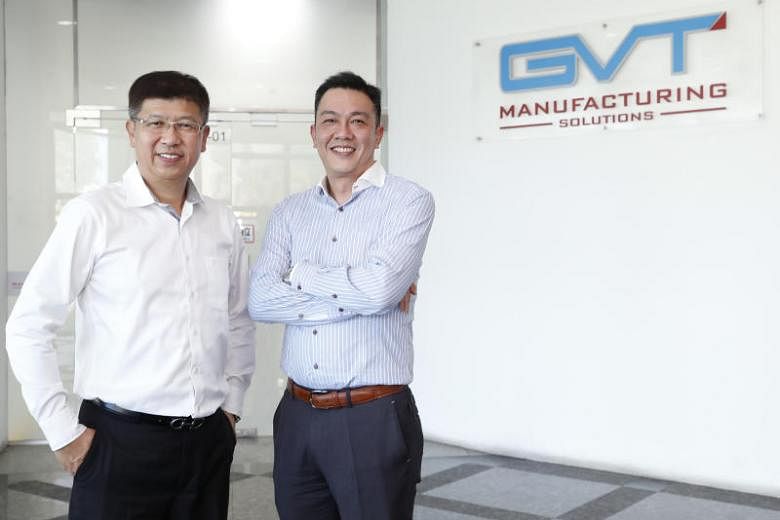SINGAPORE - Local manufacturer Grand Venture Technology has registered its offer document for an initial public offering (IPO) on the Catalist board, and is eyeing an expansion into the medical industry with proceeds from the offering.
Grand Venture, which was established in Singapore in 2012, provides engineering, assembly and testing services used in semiconductor manufacturing and the analytical life science industry. It has facilities in Singapore, Malaysia and China.
The company announced yesterday that it is looking to raise about $13.2 million in gross proceeds, in part by issuing new shares, making it the first IPO of 2019.
These comprise a public tranche of 800,000 shares and a placement tranche of 42,118,000 shares at 27.5 cents each.
Separately, investment holding company Sunshine Power has entered into an agreement with Grand Venture to subscribe for 5,095,000 shares at the same price.
Based on this price, the company's market capitalisation is expected to be approximately $64.4 million, it said on Tuesday.
It intends to start trading on Jan 23.
The money raised will go towards investing in and enhancing operational and engineering capabilities, as well as expansion via mergers and acquisitions, joint ventures and partnerships.
It will also help repay bank borrowings and serve as general working capital, said Grand Venture.
The company's future plans include growing its customer base in existing and new market segments.
Chief executive Julian Ng, 46, said: "We believe the medical industry will bring us more stable business. It's not so cyclical... The barrier to entry is also high and once you enter, you are in it for the long term."
This high barrier applies to Grand Venture's existing areas of expertise as well, said Mr Ng, who has around 20 years' experience in the manufacturing and precision engineering industries.
Founded by semiconductor industry veteran Ricky Lee, 57, who played key roles in listing two other companies, Norelco Centreline Holdings and ETLA, Grand Venture mostly derives its revenue from multinational customers operating in Singapore and Malaysia.
The company's revenue has grown at a compounded annual growth rate of 87 per cent from $8.8 million in financial year 2015 to $30.9 million in financial year 2017. Revenue grew from $15.8 million in the first half of 2017 to $21.8 million in the same period in 2018.
Its net profit was $3.8 million in the financial year 2017, compared to a net loss of $2.4 million in the financial year 2015.
Looking ahead, Mr Ng added that the company is looking into areas in the medical industry such as medical imaging and diagnostics, as well as microscopes and surgical robots.
With companies in some of its existing industries - such as analytical life sciences - also moving to sell instruments to hospitals, Grand Venture's move will position it for deeper partnerships in their supply chains, he said.
On Tuesday, Grand Venture said it intends to set aside $7.5 million from net proceeds of its issuance of shares to transform the company into a "smart organisation", and plans to set aside $1.5 million to expand its market reach, technical know-how and operational capabilities.
In particular, it is considering looking at joint venture partnerships in the United States, Europe or Japan, with the hope of bringing more capabilities to Singapore so clients do not have to purchase components or modules from their home countries, said Mr Ng.
The company added in a statement on Tuesday that its prospects are "buoyed by sustained demand for semiconductor capital equipment", supporting global demand for consumer electronics and wireless communication, among others.
For its analytical life sciences equipment segment, growth is expected to be driven by the prevalent use of mass spectrometry technologies in drug development and increased research and development spending by pharmaceutical companies, it said.
"We started from a very low base... (Initially), we invested heavily mainly to target the multinationals," said Mr Ng. "We were successful in getting qualifications, phased in production runs and started to see growth starting in year 2016. 2017 and 2018 were (full speed) for us, so we thought this was the right time for us to move to the next phase (of expansion)."


